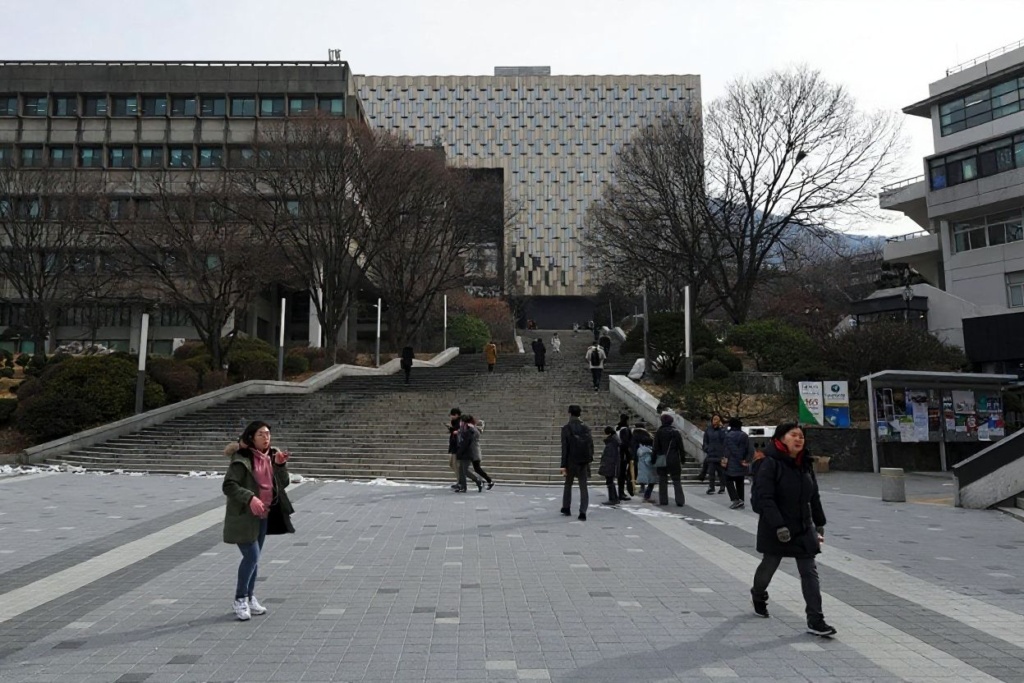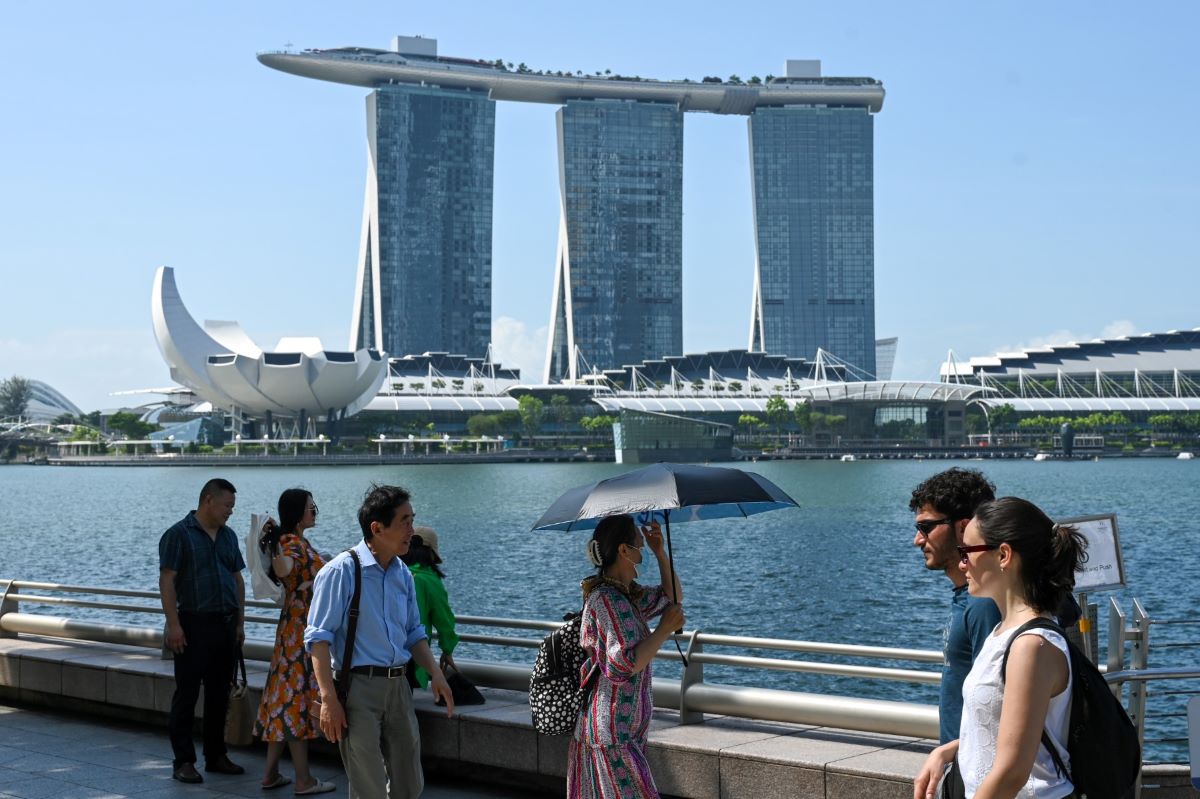
Pausing your career and life to go back to university for an MBA is a big investment — which is why it’s important that you not only choose the best programmes but also the best countries for MBA
The Master of Business Administration is the undisputed champion among postgraduate business degrees worldwide.
Its appeal is easily understandable, considering the profound impact MBA graduates have made in assuming prominent leadership roles across diverse industries and leading companies, including renowned giants like Google, Amazon, and Microsoft.
Beyond just the prestige, the allure of the MBA lies in the promise of lucrative rewards throughout one’s professional journey.
Over a post-MBA lifetime, MBA graduates can look forward to substantial seven-figure salaries throughout their professional journey.
And you don’t even need an MBA from elite institutions like Harvard and Stanford to obtain such high-paying outcomes.
According to the PayScale survey, MBA graduates from the top 50 business schools in the US have achieved an impressive median cash compensation of US$5.7 million over a span of 35 years after their graduation.
Compared to those with a bachelor’s degree, MBA graduates earn a staggering US$2.3 million more.
This impressive return on investment is just one of the many advantages and privileges associated with this prestigious degree, which was first introduced by Harvard University Graduate School of Administration (now Harvard Business School) back in 1908.
At that time, it was the first and only graduate management degree that attracted a class of 80 students taught by 15 faculty members.
There are downsides to putting a hold on your life and moving to the best countries for MBA studies.
Much of this is due to your foregone salaries for up to two years and the costs of living and learning abroad. In 2023, the average two-year cost for a top-10 MBA is US$236,873, according to Poets&Quants.
Earning an MBA typically takes a minimum of one year and a maximum of two years for full-time programmes, with additional time for part-time studies. This time commitment is substantial, requiring students to put other commitments on hold.
Part-time programmes are particularly intensive, with students engaged in learning activities after working hours. The workload extends beyond classes to include group assignments and activities — which can be hard to juggle with family and career obligations.
Who is the MBA programme for?
Although MBA programmes were once limited to business, finance, and consulting students, that’s no longer the case.
Now, MBA classes comprise diverse backgrounds, including tech, healthcare, non-profit, and media graduates.
For example, the Harvard MBA class of 2026 included students from the tech industry, healthcare, non-profit, and even media graduates. This shows how management degrees such as the MBA benefits everyone from different disciplines.
Pursuing an MBA abroad offers more than just an opportunity to learn from them and their more diverse walks of life; it’s also a gateway to a future with more career opportunities in multiple countries.
Graduates with degrees that had an international focus in an average of 40% of their curriculum strongly agree that they have received more promotions than peers without their degree, according to Graduate
Management Admission Council’s Alumni Perspectives Survey 2018.
From promotions to personal growth, an MBA abroad can take you far — especially if it’s from one of the best countries for MBAs below:
10 best countries for MBAs for international students
 Want to get the best of this prestigious postgraduate degree? Consider pursuing an MBA in these countries.
Want to get the best of this prestigious postgraduate degree? Consider pursuing an MBA in these countries.
1. Germany
Germany is a nation driven by innovation and technology.
Here, students benefit from networking opportunities provided by a country which is home to businesses including Mercedes-Benz, BMW, Siemens, Deutsche Bank and Bosch.
You can pursue your MBA at some of its top universities, such as WHU Otto Beisheim School of Management, Berlin School of Business and Innovation (BSBI), ESMT Berlin, and Macromedia University of Applied Sciences.
Private universities in Germany offer diverse MBA specialisations, including finance, marketing, international business, entrepreneurship, and more.
For instance, Macromedia University of Applied Sciences offers a general MBA programme and specialised options such as a Data Analytics MBA and a Marketing MBA.
 Malaysia is one of the best countries for MBAs because it’s a gateway to the rest of Asia.
Malaysia is one of the best countries for MBAs because it’s a gateway to the rest of Asia.
2. Malaysia
Malaysian universities like University Malaya (UM) and Taylors University offer globally recognised MBA degrees, with affordable tuition fees and a low cost of living.
Thanks to its strategic location, you will experience a multicultural environment that enriches what you know about doing business in Asia, a region that’s home to the world’s biggest market (China) and most populous nation (India).
There’s more. Malaysia is an oil-producing nation, one of the best-paying industries in recent decades — studying here paves the way for an MBA student to seek opportunities at its many energy companies, including Petronas, which is part of the Fortune 500.
You can also pursue accredited MBA programmes with specialisation at branch campuses of renowned universities like Monash University and Heriot-Watt University at a significantly reduced cost.
 There are around 75 internationally recognised MBA programmes in Australia, many of which have global accreditation from the AACSB and EQUIS.
There are around 75 internationally recognised MBA programmes in Australia, many of which have global accreditation from the AACSB and EQUIS.
3. Australia
Australia is considered one of the world’s top 10 most liveable countries due to its excellent education system, high standard of living, relaxed lifestyle, natural beauty and vibrant city life.
There are around 75 internationally recognised MBA programmes in Australia, many of which have global accreditation from the AACSB and EQUIS.
Australia has four universities in the top 100 – QS Global MBA Rankings 2025 – including Melbourne Business School, UNSW, University of Sydney Business School, and UQ Business School.
Melbourne Business School, located in Carlton, between Melbourne’s CBD and rapidly developing knowledge precinct, often hosts business leaders and thinkers who speak at events such as the Dean’s Leaders Forum and Women and Management Dinner.
Over in Canberra, the Australian National University offers the world’s first Evidence-Based management MBA programme, which equips students with the skills to identify, evaluate and apply the best available evidence to inform more effective decision-making.

With a degree from one of the best countries for MBAs, you can climb up the career ladder quickly and in multiple countries.
4. France
France was the first country in Europe to offer MBA programmes.
Its top-class business schools, including HEC Paris, INSEAD, ESCP Business School, ESSEC Business School, and EDHEC Business School provide internationally recognized programmes and excellent pan-European networking opportunities. These schools rank in the top 50 according to QS World University Ranking MBA 2023.
Pursuing an MBA in France opens world-class opportunities for international students with specialised niches in Marketing, Finance, Accounting, and Human Resources Management.
For instance, at HEC Paris, students have a dynamic, hands-on learning experience and seven specialisation options.
They benefit from the financial and business hub of Paris, close links to many of Europe’s other major political and economic cities, and the ability to learn one of the world’s most important languages.
 Pursuing an MBA in Canada is more affordable than completing this postgraduate degree in the UK, US or Australia.
Pursuing an MBA in Canada is more affordable than completing this postgraduate degree in the UK, US or Australia.
5. Canada
Canada remains a popular destination for potential MBAs thanks to the quality of its business schools and the employment opportunities available post-graduation. In fact, four of the top 100 business schools in the QS Global MBA Rankings 2025 are located in the country.
If you prefer a two-year MBA programme, then Canada is a great choice.
The two-year MBA allows specialisation in the second year after studying core subjects in the first year. Some universities offer accelerated MBA programmes, which are completed in 16 to 18 months.
Graduates benefit from Canada’s generous Permanent Residency programme, facilitating easy immigration and settlement, especially in major business hubs like Toronto, Vancouver, and Montreal. Additionally, the Post Graduate Work Permit enables students to stay and work in Canada for three years.

The backdrop of the hit film "Crazy Rich Asians" is set in one of the best countries for MBAs, Singapore.
6. Singapore
Singapore has positioned itself as a reputable financial and regional trading centre.
The country ranked fourth in the Global Innovation Index 2024 and is home to companies such as DBS Bank and Singapore Airlines.
Moreover, it houses some of the best universities to pursue an MBA.
The National University of Singapore (NUS) Business School, Nanyang Business School, and Singapore Management University (SMU) all rank in the 2024 Financial Times Global MBA rankings.
Students can stand out in an increasingly competitive job market by pursuing MBA programmes with niche specialisations.
NUS Business School, for example, allows students to choose from nine MBA specialisations (ranging from consulting to innovation and entrepreneurship) or select from more than 50 academic and experiential electives.
 Want to pursue an MBA and learn Spanish at the same time? You can do just that when you study for an MBA in Spain.
Want to pursue an MBA and learn Spanish at the same time? You can do just that when you study for an MBA in Spain.
7. Spain
Spain has become a popular favourite for students from Latin America or those who wish to work with a Spanish-speaking nation after completing their MBA.
Many of Spain’s cities are significant financial hubs, including Barcelona, — one of the largest ports in the Mediterranean Sea.
Spain’s low cost of living makes it affordable for international students to pursue an MBA.
On average, you can expect to pay 900 euros a month to cover the cost of rent, food, drinks, and utilities, according to Erudera.
Depending on the school, the path to admissions may be easier in Spain than in other Western countries due to less stringent entry requirements.
The best part? You can spend some time learning Spanish. Some business schools incorporate Spanish language training.

A student climbs stairs at the experimental quantum physics laboratory of the University of Amsterdam.
8. Netherlands
There is plenty to love about the Dutch lifestyle, famed for the local’s obsession with “gezellig” (a state of cosiness and togetherness).
People are warm and welcoming; it won’t surprise you to see random strangers starting up a conversation on the bus or the tram.
The Netherlands is well-represented in global university rankings — two of the country’s 20 universities are in the top 100 institutions in the world for their MBA programmes.
Much of this has to do with the quality of its business teaching, which is largely influenced by the large number of global companies that have offices here, which include Shell, Heineken, Unilever, Philips, and ING.
What’s more, the Netherlands ranks fourth in terms of startup value creation in Europe. Among cities, Amsterdam is one of Europe’s fastest-growing startup hubs.
 As one of the world’s most competitive financial centres, pursuing an MBA in the UK is a chance to be close to a thriving financial hub.
As one of the world’s most competitive financial centres, pursuing an MBA in the UK is a chance to be close to a thriving financial hub.
9. UK
Currently, London is ranked as one of the world’s most competitive financial centres in the Global Financial Centres Index.
This edge makes the UK attractive for future MBA students.
Many of the country’s top-performing institutions, such as the London Business School, the London School of Economics, and UCL, are based in the capital — providing students with experience and connections in the financial heart of Europe.
What’s more, many MBA programmes in the UK can be completed within a year and thus cost relatively cheaper than a two-year programme in the US, for example.
It costs 17,400 pounds (US$22,154) to pursue a one-year MBA at the University of Worcester.
 VP of Government Engagement at Mastercard Olga LaBelle, VP of Social Impact for the NBA Barbara Bush, CEO of Equity Bank James Mwangi, Founder and Chairman of Copia Global Tracy Turner, Ambassador Meg Whitman attends The 2023 U.S.-Kenya Business Roadshow Launch at The Harvard Club on April 25, 2023 in New York City.
VP of Government Engagement at Mastercard Olga LaBelle, VP of Social Impact for the NBA Barbara Bush, CEO of Equity Bank James Mwangi, Founder and Chairman of Copia Global Tracy Turner, Ambassador Meg Whitman attends The 2023 U.S.-Kenya Business Roadshow Launch at The Harvard Club on April 25, 2023 in New York City.
10. US
You can’t mention the best countries for an MBA without talking about the US.
As the country that first offered this postgraduate degree, it’s no surprise to see business schools such as Harvard, Stanford, and Wharton consistently top MBA rankings. Naturally, it also makes sense that in 2022, 54% of US schools saw an increase in international MBA students.
An MBA in the US will expose you to the latest research and industry insight from a broad faculty base that often combines academia with industry experience.
Certain MBAs are now STEM-designated too, allowing international students to stay up to three years in the US to chase all the opportunities that come their way.
Disclaimer: This article was last updated on December 5, 2024.










